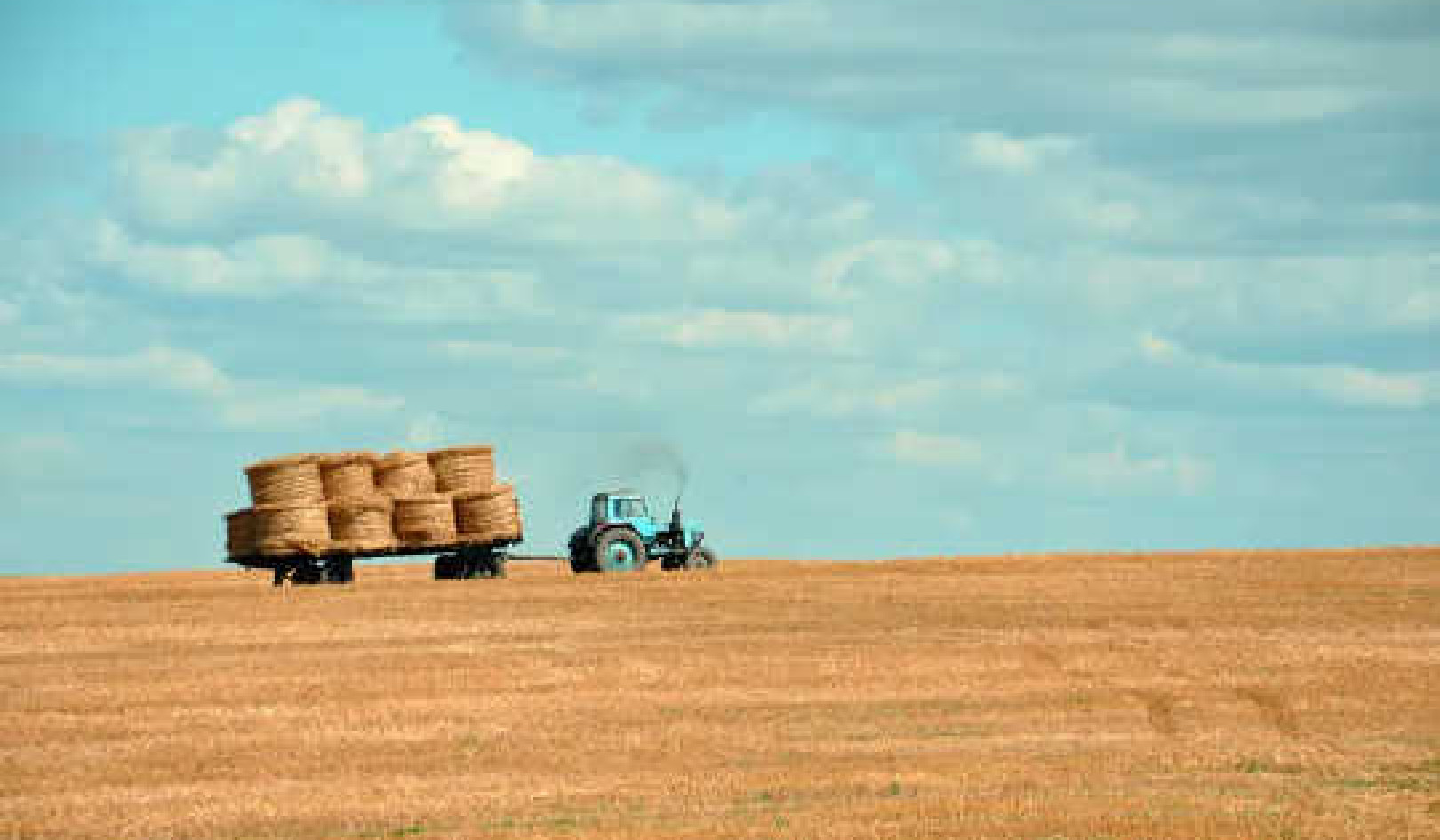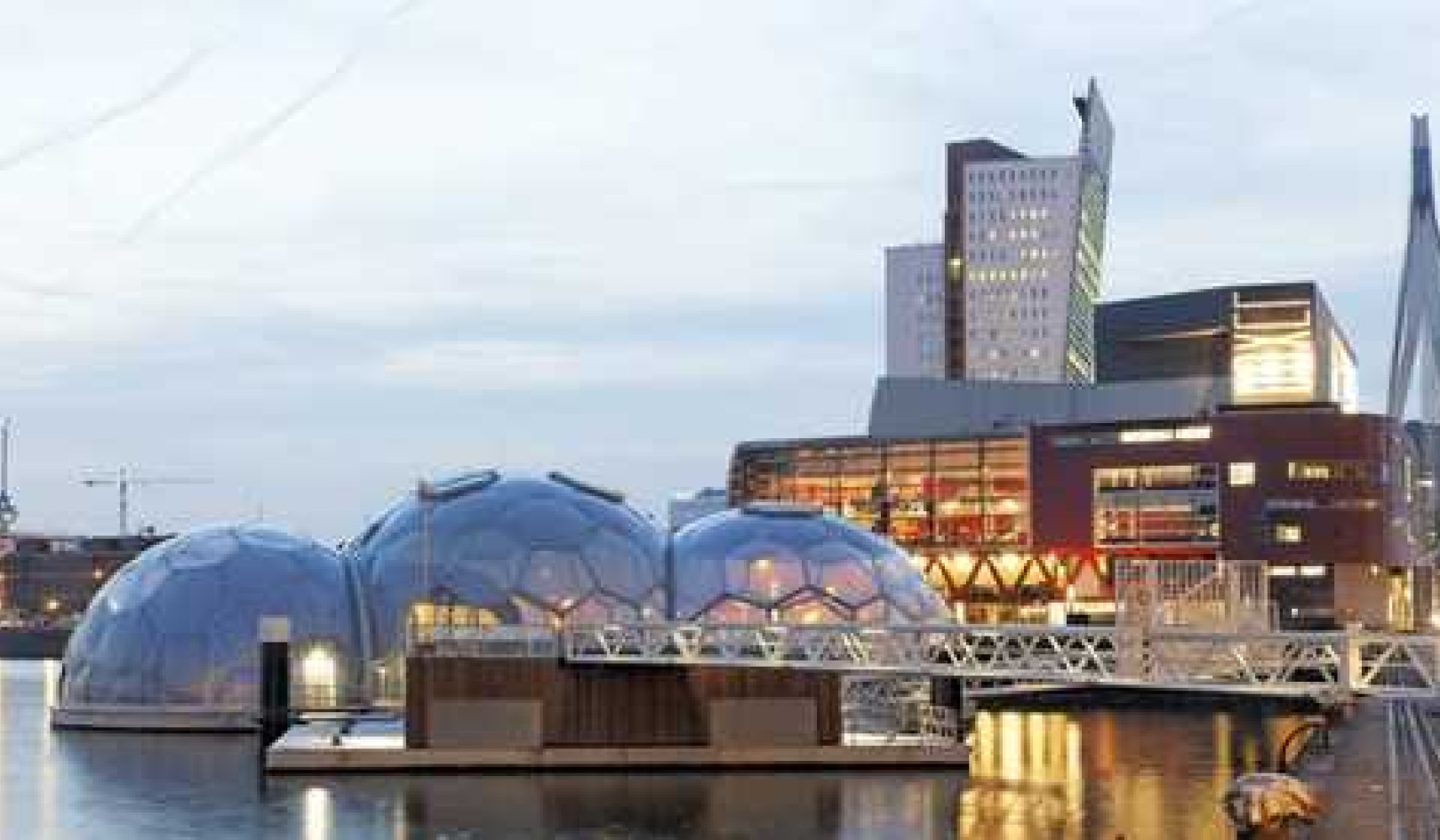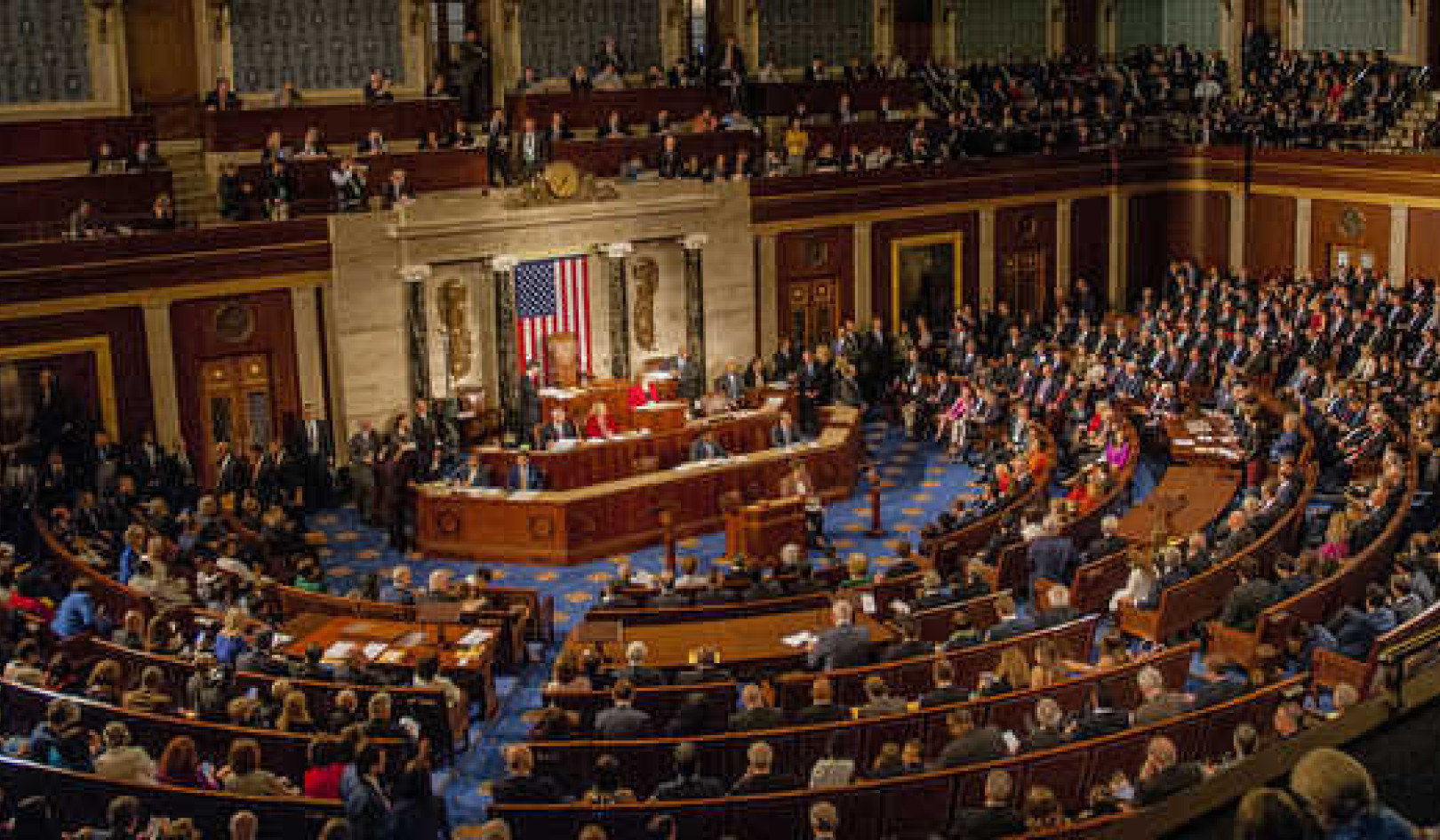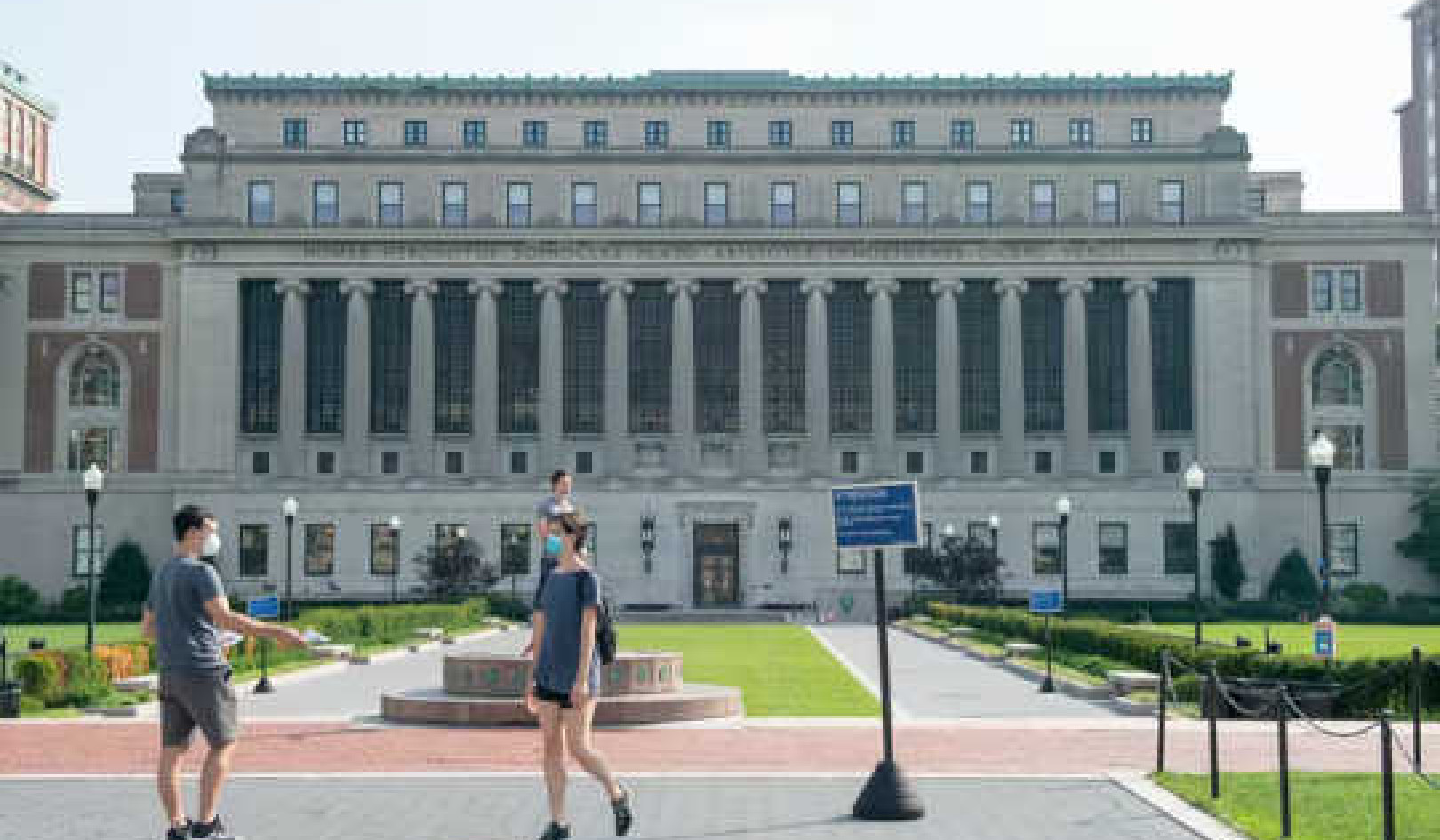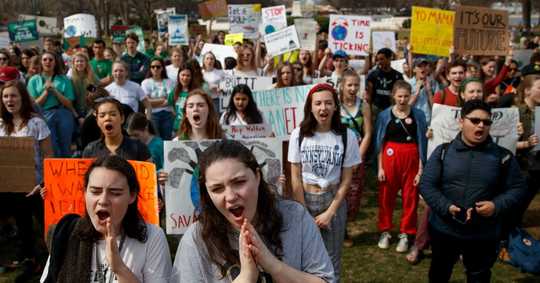
Students cheer and chant while listening to a speaker during the Youth Climate Strike on March 15, 2019 on Capitol Hill in Washington D.C. (Photo: Tom Brenner/Getty Images)
"There's a tremendous amount of power that drives through those streets and parks next to those sidewalks and walks into those buildings. We want them to think about what they're doing with that power."
Environmental activists are hoping to bring Washington, D.C. to a "gridlocked standstill" on September 23, 2019 with a massive act of civil disobedience aimed at disrupting business as usual and getting the attention of members of Congress standing in the way of bold climate action.
The #ShutDownDC day of action, scheduled for Sept. 23, is expected to include blockades at key intersections throughout the U.S. capital, according to a press release from the coalition of advocacy groups that organized the protest.
"The severity of the issue and the complete lack of response from elected officials necessitates mass civil disobedience," Kathleen Brophy, an organizer with 350.org, said in a statement.
The civil disobedience is expected to come during a week of youth-led global climate strikes, which are set to begin Sept. 20 and continue through Sept. 27.
The transition off of fossil fuels is inevitable; justice is not.
— Extinction Rebellion Washington DC (@XRebelDC) August 28, 2019
Join us in the streets September 23 to #ShutDownDC as part of the global #ClimateStrike and demand solutions that work for all of us #StrikeWithUs #Sept23https://t.co/dC95Zw55gt pic.twitter.com/p5dDwq5qkc
Sean Haskett of the youth-led Sunrise Movement told The Guardian on Wednesday that the goal of the #ShutDownDC action is to "disrupt the workings of power."
"There's a tremendous amount of power that drives through those streets and parks next to those sidewalks and walks into those buildings," said Haskett. "We want them to think about what they're doing with that power."
The coalition behind the protest—which includes prominent organizations such as Extinction Rebellion D.C., Movement for a People's Party, and CodePink—acknowledged the blockades will likely "cause massive disruption to people who bear little responsibility for the climate catastrophe we are facing."
"But we will also cause massive disruption for politicians, huge corporations, and the lobbyists who control our government," the groups said on the website for the action. "We need to fundamentally change the power structure of the United States if we want to stop the climate crisis, and shutting down D.C. is a big step in the right direction."
According to organizers, the D.C. action will mark the beginning of an "international wave of citywide climate shutdowns" in major cities across the world, including London, Paris, and Berlin.
"There's no time left for business as usual; the climate crisis is here," the D.C. coalition said. "This is the mass uprising that everyone with climate anxiety has been waiting for. This is an uprising for life itself, fighting back against the forces of destruction."
This article originally appeared on Common Dreams
About The Author
Jake Johnson is a staff writer for Common Dreams. Follow him on Twitter: @johnsonjakep

Related Books:
Caste: The Origins of Our Discontents
by Isabel Wilkerson
In this book, the author examines the history of racial oppression in America and explores how it continues to shape social and political structures today.
Click for more info or to order
Unbound: My Story of Liberation and the Birth of the Me Too Movement
by Tarana Burke
Tarana Burke, the founder of the Me Too movement, shares her personal story and discusses the impact of the movement on society and the fight for gender equality.
Click for more info or to order
Minor Feelings: An Asian American Reckoning
by Cathy Park Hong
The author reflects on her experiences as an Asian American and explores the complexities of racial identity, oppression, and resistance in contemporary America.
Click for more info or to order
The Purpose of Power: How We Come Together When We Fall Apart
by Alicia Garza
The co-founder of the Black Lives Matter movement reflects on her experiences as an activist and discusses the importance of community organizing and coalition building in the fight for social justice.
Click for more info or to order
How to Be an Antiracist
by Ibram X. Kendi
The author offers a guide for individuals and institutions to recognize and challenge racist beliefs and practices, and to actively work towards creating a more just and equitable society.





















